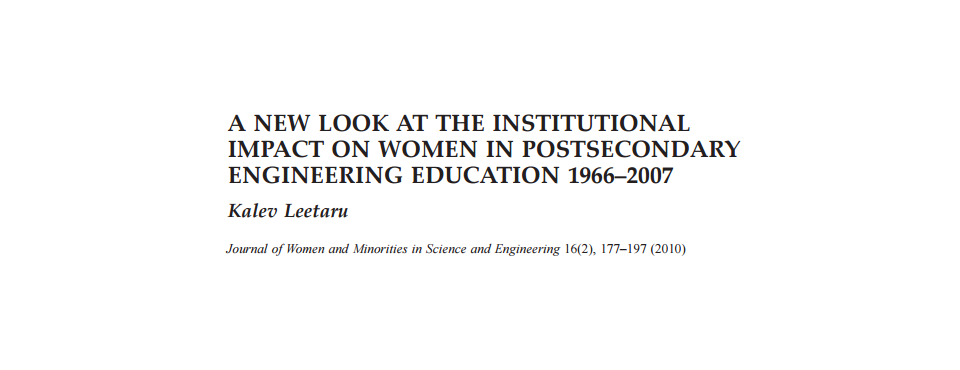
Postsecondary studies of women in the engineering disciplines tend to treat the issues of recruitment, retention, and density of female students as an overarching metric that affects all institutions equally. Samples of doctoral-granting institutions are often used as proxies to make projections regarding the field as a whole, and it is assumed that institutional gender segregation is largely an issue of the past. This study uses 40 years of US Department of Education data to explore how an institution’s Carnegie classification impacts several characteristics of its degree conferral behavior and reveals some surprising findings, such as only one half of all physics programs on average over the past 20 years awarding to women each year. Masters colleges are found to play an important role in the education of female students in certain majors, and institutional types and majors are found to be strongly stratified nationally based on their conferral patterns to women.